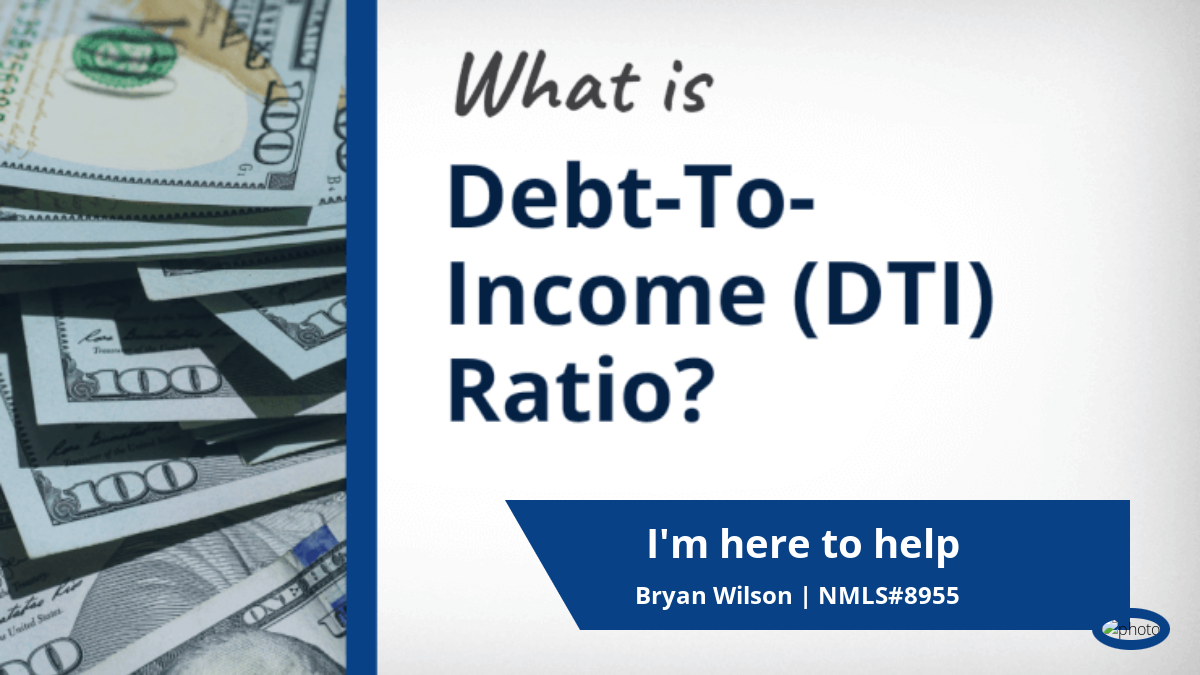Home Loans 101: What is Debt-To-Income (DTI) Ratio?

A debt-to-income (DTI) ratio is a crucial metric in the financial world, particularly for prospective homebuyers and lenders. It measures the percentage of a buyer's monthly income that goes towards paying debts.
This ratio helps lenders understand the portion of the buyer's income that is already committed to existing debts, providing insight into the buyer's financial health and ability to manage additional loan payments.
Lenders use the DTI ratio to assess the borrower's risk and determine what portion of the buyer's income remains available after all monthly obligations, such as mortgages, car loans, credit card payments, and other debts, are met. The calculation of the DTI ratio involves dividing the total monthly debt payments by the gross monthly income.
A lower DTI ratio indicates a healthier balance between debt and income, suggesting that the buyer is in a better position to take on additional financial commitments. Conversely, a higher DTI ratio may signal to lenders that the buyer has a significant portion of their income already tied up in debt payments, potentially making them a higher risk for new loans.
Generally, lenders prefer a DTI ratio of 36% or lower, though some may accept higher ratios depending on other factors such as credit score, down payment, and overall financial stability.
✅ Benefits of Contract Loan Processing for VA Loans
-
Specialized VA Knowledge
-
VA loans have unique requirements (COE, residual income, funding fee calculations, appraisal requirements).
-
A contract processor experienced in VA loans can spot potential issues early and streamline the process.
-
-
Cost Savings for Lenders
-
No need to hire full-time staff; processors are paid per file.
-
Helps smaller brokerages or lenders manage fluctuating loan volumes without carrying extra payroll.
-
-
Faster Turn Times
-
Contract processors often work remotely and are paid per closed file, so they’re incentivized to move loans quickly.
-
They can push COE requests, follow up on VA appraisals, and ensure VA-specific forms (26-1880, 26-8923) are completed on time.
-
-
Compliance & Accuracy
-
VA has strict guidelines (e.g., allowable fees, seller concessions, and veteran protections).
-
A skilled processor reduces risk of compliance errors that could lead to loan buybacks or funding delays.
-
-
Scalability
-
During high volume seasons (e.g., rate drops, PCS military moves), lenders can bring on extra processors quickly without long-term HR commitments.
-
-
Reduced Loan Officer Burden
-
Lets LOs focus on originating, networking, and serving clients while the processor handles gathering DD-214s, income docs, pest inspection reports (if required), and underwriting conditions.
-
-
Improved Borrower Experience
-
Veterans and active-duty borrowers often value clear communication and speed.
-
A processor who knows the VA process can anticipate documentation needs and prevent last-minute surprises.
-
👉 In short: Contract processors help lenders stay lean, compliant, and efficient, while ensuring veterans have a smoother experience.
Get Your
FREE eBOOK
